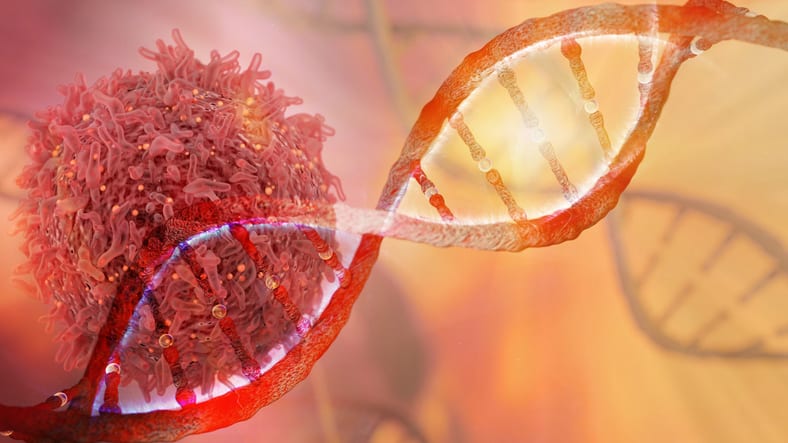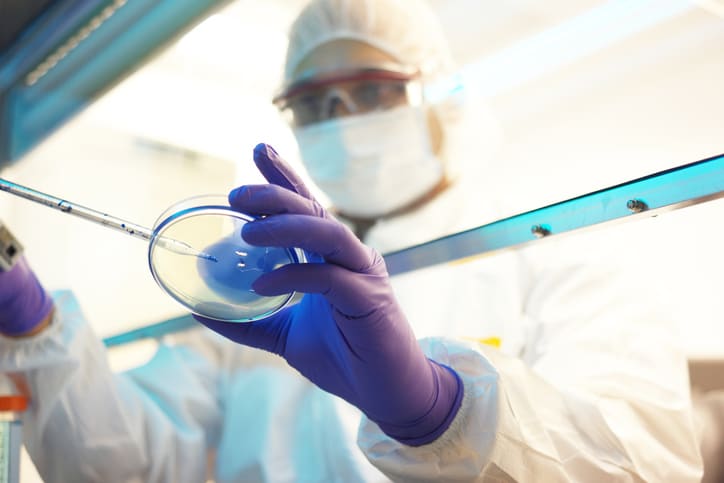Colorectal Cancer Program
At the Providence Swedish Cancer Institute, we offer leading-edge colorectal cancer care with a patient-first approach. From robotic-assisted surgery to precision radiation and targeted therapies, our multidisciplinary teams customize treatment to your needs and provide care for your whole self — all close to home in the Pacific Northwest.

Expert Care Tailored to You
Colorectal cancer care is continuously evolving and improving, and at the Providence Swedish Cancer Institute, we’re helping to lead the way. As part of our commitment to advancing care, the Providence Swedish Cancer Institute is one of the few facilities in the country to offer fellowship training in colon and rectal surgery, ensuring the next generation of surgeons is trained in the latest techniques.
Whether your treatment involves complex surgery, minimally invasive surgery, next-generation immunotherapy, or precision-guided radiation, our multidisciplinary team focuses on the most effective options for you. In addition to advanced colorectal cancer treatments, we offer streamlined access to groundbreaking clinical trials — often faster than other centers. And our treatment extends beyond the newest therapies. We take a whole-person approach, providing resources to ease the challenges of diagnosis, recovery, and life beyond cancer. From comprehensive cancer rehabilitation to integrative therapies like acupuncture and massage, we support your well-being at every stage.
Colorectal Cancer Conditions We Treat
We provide comprehensive care for colorectal cancer and related conditions, including early-stage and localized cases and invasive and advanced cancers, for the following:
- Anal Cancer
- Colon Cancer
- Rectal Cancer

Meet Our Colorectal Cancer Team
At the Providence Swedish Cancer Institute, you’ll be cared for by a tightly connected group of specialists who bring deep expertise and a personalized approach to treatment, prevention, and long-term wellness. Our colorectal cancer experts work collaboratively to support your health through every stage of care.
Testing & Diagnostics
Our colorectal cancer specialists use advanced testing and diagnostic tools to accurately identify the type, stage, and unique characteristics of your colorectal cancer.
We also offer screenings and genetic testing to promote awareness and early detection of colorectal cancer.
A biopsy involves taking a small tissue sample to determine whether cancer cells are present. It’s a common and reliable diagnostic method used to determine the presence of cancer cells. Fine needle aspiration (FNA) is used to remove a small sample of tissue or fluid. A core needle biopsy removes a slightly larger tissue sample, and a surgical biopsy may be needed if a larger sample is necessary for an accurate diagnosis.
Endoscopy uses a thin, flexible tube with a light and a camera to look inside your digestive tract. Upper endoscopy allows your doctor to view the esophagus, stomach, and the first part of the small intestine. Lower endoscopy, also known as a colonoscopy, examines the colon and rectum. These procedures help detect polyps, abnormal tissue, or cancerous growths early, often before symptoms appear.
An endoscopic ultrasound combines endoscopy and ultrasound to create detailed images of the digestive tract and surrounding lymph nodes. This advanced tool helps your care team determine the extent of your cancer and whether it has spread.
Genetic tests, also known as genetic screenings, DNA tests, or chromosomal tests, predict your risk of developing certain malignancies, especially if you have a family history of cancer. We offer treatment, management, and prevention plans that are personalized to your unique genetic profile.
Different types of imaging may be recommended based on the suspected type and location of the tumor. MRI uses radio frequency waves and a magnetic field to create detailed images of organs and tissues. PET/CT scans combine two types of imaging to show both the structure and function of tissues. X-rays are used to evaluate suspected cancer in bones, tissues, and organs, providing a fast, effective view of abnormalities. Ultrasound uses sound waves to produce pictures of the body's internal organs.
Next-generation sequencing, or molecular tumor profiling, looks at the unique genetic features of your tumor. Analyzing the DNA of cancer cells can identify specific changes that may be causing the cancer to grow. This helps your care team understand what’s driving your cancer and whether targeted treatments or clinical trials might be a good fit for you.
Advanced Treatments for Colorectal Cancer
The most effective treatment plan is one personalized for you and targeted to the unique characteristics of your tumor. Depending on your condition, you may receive one or more of the following treatments:
Awards & Accreditations
The Providence Swedish Cancer Institute is nationally recognized for excellence in cancer care, research, and patient outcomes. Our dedication to advancing cancer treatment has earned accreditations and distinctions from some of the most respected institutions in the country.

American College of Radiology (ACR) - Diagnostic Imaging Center of Excellence

American College of Surgeons (ACS) - Commission on Cancer Accredited Program

American Society for Radiation Oncology (ASTRO) - Accreditation Program for Excellence (APEx)
Patient Resources & Support
Frequently Asked Questions
You may receive care from board-certified colon and rectal surgeons, medical oncologists, and radiation oncologists.
Our multidisciplinary team also includes oncology nurses, pharmacists, physical therapists, and other cancer experts who support you throughout your care. Your physicians work closely together — participating in cross-departmental tumor boards with other Providence Swedish specialists — to create a treatment plan tailored to you. Although your care is team-based, you’ll continue to have regular appointments with your lead physician, who stays closely involved and helps coordinate your treatment every step of the way.
Your treatment is unique to your diagnosis and needs. It may involve surgery, radiation, chemotherapy, or targeted therapies, in addition to ongoing Supportive Care services.
Your team walks you through each step, helping you manage side effects and access resources like nutrition counseling, social services, and survivorship programs. Our goal is always to ensure you feel supported throughout your care.
Learn more details about all the available treatments for colorectal cancer and what to expect during your treatment.
We provide a full range of supportive care services to support you during and after your cancer treatment. Some of these services include:
- Art therapists
- Cancer rehabilitation (onco-physiatry)
- Care coordinators
- Genetic counseling (cancer geneticist)
- Health educators
- Medical massage (edema, lymphedema management)
- Music therapist
- Naturopaths
- Nutritionists
- Oncology nurses
- Social workers
- Speech and language pathology
We can also help with finances, food, transportation, and other challenges for eligible patients through our patient assistance fund.
See the full list of supportive care services.
Note: Some services are provided by local partners and vary based on location. Please contact your clinic for more information.
Patients have access to hundreds of clinical trials involving most cancer types. We are often among the first in the U.S. to provide access to Phase 1 trials — the first stage of evaluating treatments in humans. Please note, we open new trials often. Check with your clinician for the latest in upcoming trials.
Learn more and find out if a clinical trial could become part of your treatment plan.
If you're feeling unsure about your pathology report – which explains details like the type, size, and stage of your cancer based on lab results – our team is here to help.
We will walk you through the report, answering questions so that you feel informed and confident about your diagnosis and treatment options.
Getting a second opinion can help you feel more confident in your diagnosis and treatment plan. If you’ve already been diagnosed somewhere else, we’re here to help you take the next step. Call 855-XCANCER, 855-922-6237 - our care coordinators will match you with the right cancer specialist and help schedule your visit. They can also work with your current physician to collect your medical records and test results.
Our goal is to help you understand the insurance and billing process.
We have financial counselors on staff to help you sort out any insurance issues. These counselors work with your insurance company to verify benefits and coordinate pre-certification or pre-authorization of care if necessary. Then, they coordinate all this information with the medical center’s billing services.
We also have oncology social workers who can help you with:
- Benefits advocacy, if you are eligible
- Financial counseling
- Medicaid applications
- Medicare and coordinating Medigap and prescription plans
Our mission is to improve the health and well-being of each person we serve. A crucial part of fulfilling this mission is our financial assistance program.
This program offers free or discounted services for those who cannot afford care, are underinsured, or have no insurance at all. We provide financial assistance in cases where annual family income is between zero and 400 percent of the federal poverty level, helping ensure that financial constraints aren’t a barrier to receiving medically necessary care.
News & Info From Our Experts










